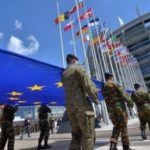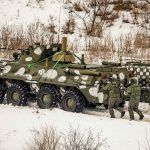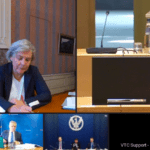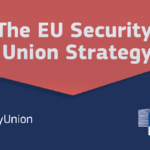EUvsDisinfo, the flagship project of the European External Action Service’s East StratCom Task Force, established in 2015 to better forecast, address, and respond to the Russian Federation’s ongoing disinformation campaigns affecting the European Union, its Member States, and countries in the shared neighbourhood, overviews the most prevalent and dangerous myths — and often outright lies — related to the Russia-Ukraine conflict
From its illegal annexation of the Crimean peninsula in 2014 and its ongoing military aggression against Ukraine, Russia has waged a sustained and coordinated state-controlled disinformation campaign targeting the Russian population, Russia’s neighbour countries, the European Union and beyond, particularly aiming at influencing public opinion. Propped up by state-controlled media and a broader “eco-system” of pro-Kremlin media, Russian authorities have spared no effort to denigrate Ukraine, portray it as threat to global security, and attack the international community for supporting Ukrainian sovereignty, territorial integrity and independence within its internationally recognised borders. The Russian campaign has also directly targeted the role of the European Union and other players, in particular NATO, mis-portraying them as alleged aggressive threats against Russia’s “legitimate security concerns.” Russia’s recent military build-up, starting in the spring of 2021 at the Ukrainian border and in the illegally annexed Crimean peninsula, has only intensified this barrage of disinformation.
7 myths about the Russia-Ukraine conflict
Myth 1: “The current tensions are the result of persistent aggressive behaviour of Ukraine and its allies in the West. Russia is doing nothing but defend its legitimate interests and is not responsible for this conflict”.
False. The fact is that Russia continues to violate international law as well as other agreements to which it committed. By illegally annexing the Crimean peninsula and committing acts of armed aggression against Ukraine, Russia, one of the permanent members of the UN Security Council, has violated at least 12 international and bilateral treaties. These include the UN Charter, the Helsinki Final Act, and the Charter of Paris, which guarantee sovereign equality and territorial integrity of States, the inviolability of frontiers, refraining from the threat or use of force, and the freedom of States to choose or change their own security arrangements.
Myth 2: “The situation in Ukraine triggered this conflict. There is proof that Ukraine is committing atrocities against its Russian-speaking population in the country’s east. Russia has to intervene, not least because Ukraine and Russia are ‘one nation.’ Ukraine simply belongs to Russia’s “privileged sphere of influence”.
False. Allegations that Ukraine is attacking its own territory and persecuting its own citizens are absurd. To galvanize domestic support for Russia’s military aggression, Russian state-controlled media have tirelessly sought to vilify Ukraine, accusing it of alleged genocide in eastern Ukraine, drawing groundless parallels with Nazism and World War Two, and fabricating stories aimed at striking a negative emotional chord with audiences.
Myth 3: “In any event, Ukraine should turn to Russia because the EU and the West are not interested in the country and have abandoned it”.
False. The EU has a strategic partnership with Ukraine. In fact, Ukraine has grown into one of the EU’s closest partners, a partnership consolidated in recent years by the EU-Ukraine Association Agreement and the Deep and Comprehensive Free Trade Area(opens in a new tab). Today, the EU is Ukraine’s largest trade partner, accounting for more than 40% of its trade. The EU supports a wide range of programmes in Ukraine in the framework of the EU’s Eastern Partnership(opens in a new tab) and supports Ukraine in implementing its reform agenda. Since 2014, the EU has provided Ukraine with €17 billion in loans and grants.
Myth 4: “The current crisis is the fault of NATO and the West. If they had honoured their promise not to enlarge the alliance, Russia would not feel threatened.”
False. Such a promise was never made, nor was it ever asked from NATO. Russian state-controlled media have often claimed that Soviet leader Mikhail Gorbachev was promised “verbally” that NATO would not expand beyond the reunified Germany. In fact, Gorbachev himself denied this claim in a 2014 interview(opens in a new tab), saying that “the topic of ‘NATO expansion’ was not discussed at all, and it wasn’t brought up in those years. I say this with full responsibility. Not a single eastern European country raised the issue, not even after the Warsaw Pact ceased to exist in 1991.”
Myth 5:“Because of NATO’s aggressive expansion, Russia is now ‘encircled by enemies’ and needs to defend itself.”
False. No country or alliance is plotting to invade Russia. No one is threatening Russia. In fact, the EU and Ukraine are staunch supporters of the established European security order. Remember that Russia is the world’s largest country by geography with a population of more than 140 million and has one of the largest armed forces in the world with the highest number of nuclear weapons. It is absurd to portray Russia as a country under acute threat. In terms of geography, less than one sixteenth of Russia’s land border is with NATO members. Of the 14 countries Russia borders, only five are NATO members.
Myth 6: ““In any case, Russia is not responsible for the current tensions in Ukraine. Ukraine has deliberately violated the Minsk agreements and the West is further arming Ukraine. Russia needs to react swiftly by defending its borders. The provocation comes from the West.”
False. In fact, it is Russia that amassed 140,000 troops and equipment on the borders of Ukraine including in the illegally annexed Crimean peninsula.
Myth 7: “The EU in any case is weak and irrelevant. Why even bother speaking to the EU?”
False. The Russian political establishment has worked hard to convince the world that the EU is weak and has no interest in advancing international peace and security. Russian officials and state media routinely portray the EU as irrelevant and unable to handle crises, be it the Russia-Ukraine conflict, or any other international issue. In January 2022, Foreign Minister Sergei Lavrov went so far as to accuse the EU of “impotence.”
More information: EUvsDiSiNFO







Leave a Reply